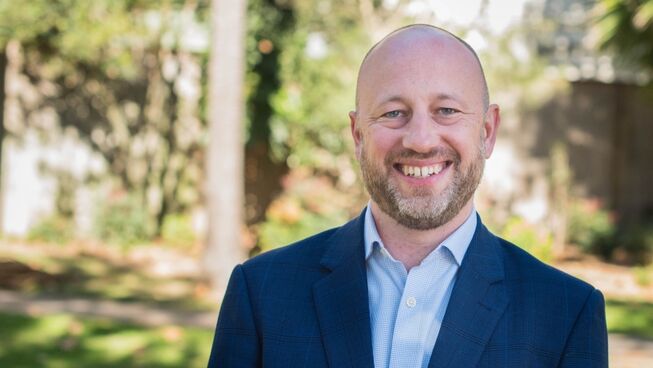Three reasons why we procrastinate (and how to overcome it)

We all have moments of procrastination. We live in a world marred by sin, so we all inevitably have to do things we don’t enjoy doing or find hard to do.
Even so, many of us probably wish that we didn’t procrastinate so much! But before we can think about how to overcome it, we need to first understand why we do it.
Procrastination “really has nothing to do with time management”, says psychology professor Joseph Ferrari. Rather, “we delay action because we feel like we’re in the wrong mood to complete a task and we assume that our mood will change in the near future”. [1]
From a Christian perspective, though, procrastination ultimately flows not just from a wrong mood but from a wrong heart (which leads to wrong thinking and a wrong mood).
When we choose to move something down our to-do list (later, tomorrow, next week), behind that decision are three choices we’re implicitly making, all ultimately driven by our hearts (motives):
1. We choose ease over challenge
We live in a time when we’re encouraged to avoid hardship and difficulty. If our aspirations can’t be fulfilled in a work role, we move on. If a friendship becomes hard work, the advice is to pull back from the relationship. Same goes even for church—if our church is no longer satisfying our needs, perhaps it’s time to look elsewhere. This is the dominant thinking in our culture—that hardship and difficulty are signs that things are not well.
Yet Scripture challenges such thinking. We are repeatedly taught that God works for our good through challenges rather than comfort (Romans 5:3-4, James 1:2-4, 1 Peter 4:12-16). In God’s strange economy, it is when we choose to do the hard thing that we’re promised the deeper pleasure that comes from a job well done (Hebrews 12:10-11, Galatians 6:9).
Scottish Baptist minister Alexander MacLaren once wrote:
No unwelcome tasks become any the less unwelcome by putting them off till tomorrow. It is only when they are behind us and done, that we begin to find that there is a sweetness to be tasted afterwards, and that the remembrance of unwelcome duties unhesitatingly done is welcome and pleasant. [2]
When we look back on the challenging tasks we’ve accomplished and recognise how God enabled us to face them, we see those “unwelcome duties” in a fresh light; we feel a “welcome and pleasant” taste after seeing how God has used them to develop our character for good.
2. We choose silence over assistance
One reason we say “I’ll do that tomorrow” is because we’re not actually sure how to do the task today. But rather than admit that we need help, our pride keeps us quiet, in the vain hope that when tomorrow comes we’ll have a better idea how to do it. But then tomorrow comes, and we still don’t know how to do it.
When we are secure in our identity in Christ (loved and treasured children of God), we can find the confidence to say, “I don’t know how to do this, can you please help me?” And maybe it will lead to something simple that will enable us to get started on the task we’ve been putting off.
3. We choose our own strength over God’s strength
We don’t say it like this, but in practice this is usually how we operate. How many times have we approached a difficult task only to defer doing it until tomorrow, instead of stopping and asking God to give us the strength, knowledge, and skills we need to do it today.
As author Scott Hubbard explains, it is often only when we begin to do a challenging task that we find God providing us what we need to do it:
When we stare at some unwelcome task and feel no strength to do it, we can forget that God often gives strength only as we start doing. The Jordan River stopped only as the priests stepped in (Joshua 3:13). The widow’s oil flowed only as she poured (2 Kings 4:1–6). The ten lepers were cleansed only as they walked away from Jesus (Luke 17:11–14). And often, God works his strength within us only as (and not before) we start working (Philippians 2:12–13). [3]
In light of these truths, how do we overcome our procrastination? Here are three ways to go about it:
1. Preach to yourself
Often the starting point to addressing bad habits is by addressing our hearts. As we begin our work for the day, and especially as we approach the difficult tasks, we need to preach the above-mentioned truths to ourselves:
“God works more through challenges than comfort so I’m going to begin this difficult task anticipating the reward which is likely to come from completing it”.
“I need help to do this, and because I’m secure in my identity in Christ I’ll ask for help”.
“I don’t feel like I have the strength to do this today, so I’ll ask God to provide me with what I need”.
This is not the same as “giving ourselves a pep talk”, advice that is common in many self-help books today. Rather, it is reminding ourselves of gospel truths. It isn’t “I can do this”, but how “God will help me through”.
2. Pray
We need to pray for God to convict us of the truths we preach to ourselves. This is the heart of addressing procrastination as a Christian—that it will only be overcome as our hearts change. Unlike self-help, we recognise that we can’t address the problem and make the hard choices in our own power.
To choose challenge over ease, to ask for help rather than struggle in silence, to remember to depend on God at every turn—in all these, we will only have the power to choose what is good if God by His Spirit enables us to do so.
So, let’s ask God to do that in us! You can start with a simple prayer, like these:
“Father, I hate to admit I need help, but I know I’m procrastinating on this task because I just don’t know how to do it. Help me to humble myself and reach out for the assistance I need.”
“Father, I don’t like doing difficult things, but I know Your Word tells me they are good for me and will build my character. Please convict me of this truth afresh and empower me to get onto the difficult task I am putting off doing.”
3. Just get started
Sometimes we just need to get started. This can often be the hardest step, but as we begin, we open ourselves up to the possibility of God providing us with what we need.
On its own, this advice might sound as useful as telling a smoker to “just stop smoking” or a depressed person to “just cheer up”. But this comes after the points brought up earlier—recognising the heart issues driving our procrastination, preaching the necessary truths we need to address the issues, and committing them to God in prayer.
Having done all that, now comes the time when we need to just simply begin, and trust that God will enable us for the task at hand.
What can help us get started is breaking a difficult task down into smaller parts and saying to ourselves, “I’m going to ask God to enable me to at least get one part done today, and I can do the next part tomorrow if need be”. Often we find that once we do the first part, the second (and third, and fourth) part doesn’t seem so difficult.
Some days we can try putting the tasks that we like least at the top of our to-do lists, and save the easy and enjoyable ones till later. To make it easier, we could add a few “quick wins” to do alongside the difficult task, so we can still experience the satisfaction of knocking a few things off our to-do lists while we work on the more difficult ones.
Procrastination affects us all. It is inevitable that there will be tasks we have to do each day that we don’t enjoy. But rather than defaulting to “I’ll do that tomorrow”, take a moment to first challenge your heart, commit your wrong thinking to God in prayer, and then make a start!
Want more wisdom, support and encouragement for your daily work?
Originally published on YMI at https://ymi.today/2022/10/3-reasons-we-procrastinate-and-how-we-can-overcome-it. Republished with permission
[1] Derek Thompson, “The Procrastination Doom Loop—and How to Break It”. Emphasis mine.
[2] Alexander MacLaren, The Conquering Christ and Other Sermons.
[3] Scott Hubbard, “Maybe tomorrow: How to overcome procrastination”.






